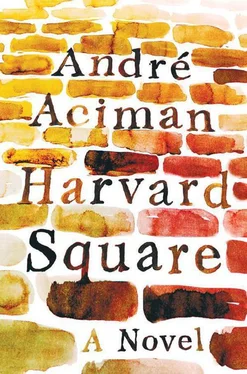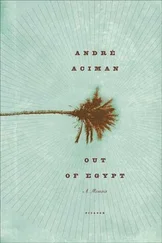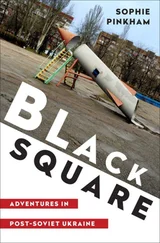Upstairs, on the terrace, is where I had decided to reread in the space of six months everything I needed for my comprehensive exams on seventeenth-century literature. Mid-January was far off yet, but in the middle of the night it felt like minutes away. Every time I was done reading a book, I’d discover many more I needed to read or reread. I’d budgeted two books a day. When it came to French prose writers I’d read three a day. The Elizabethan, Jacobean, and Restoration prose writers, definitely two a day. But then came the picaresque writers of Spain, and the prose writers of Italy, one adulterous tale after the other until the whole history of European fiction seemed written by P. G. Wodehouse on steroids. And finally German and Dutch authors. Here the solution was very simple: if I hadn’t already read them, they were never written. Ditto with some of the great French gossipmongers of the royal court: if I couldn’t remember them, they were not important. Meanwhile, I’d reread The Letters of a Portuguese Nun and Don Carlos many times and was still awed by their brilliance, which gave me hope. I was slashing my way through a jungle of books, constantly finding clever ways to assuage the pangs of conscience each time I realized I’d omitted an important work. Not exactly scholarship — but under the blazing summer sun and the near-hypnotic scent of suntan lotion around me as I watched so many thighs lounging about on tar beach, no one could ask for more.
My dissertation advisor, Professor Lloyd-Greville the redoubtable seventeenth-century scholar, had admitted me into the department with high hopes. He had always tried to throw a few financial-aid dollars my way, and he had once expected me to pass my comprehensives with cutlass and steed, like the caliph Haroun al-Rashid jumping over impossible human hurdles. He always brought up Haroun in my company, either because Haroun, like me, came from the Middle East, or because, in addition to being a great soldier and statesman, Haroun was also a patron of the arts and sciences, all of which Lloyd-Greville aspired to. But I couldn’t begin to know what he thought of me or of Haroun. Born, bred, and blooded at Harvard, Lloyd-Greville was a paragon scholar who also happened to be an authority on Yeats. I could just picture myself knocking at his door after taking my exams a second time and hearing him say, with his courtly smile followed by that unmistakable little cough that cleared his throat before he’d utter one of his lapidary pronouncements, that this time, he was so very sorry to say, I’d definitely missed the boat to Byzantium. “Even third-class passage?” I’d ask. “Even third-class passage,” he’d say. “How about the bilge area, there are always ex-convicts and stowaways in bilge class.” “Even bilge class,” he’d declaim, as he’d put on a strained much as we regret to announce smile and screw in the cap of his Montegrappa pen that had just signed my death warrant.
My other advisor, Professor Cherbakoff, was more lenient but would never deign sign off on my exams if Lloyd-Greville demurred. He liked me, I knew, but his paternal concern for me had grown downright oppressive. He too came from a Jewish family that lost everything in France owing to war and politics. His return to France after the war as a student had filled him with such horror that a few years later he was lucky enough to find a position in the United States and put France behind him. His was a sobering reminder that France, the France I dreamed of when there was no other place left to dream of, either had never existed or might never open its doors to me.
Lloyd-Greville, by contrast, worshipped France. He owned a sixteenth-century mansion in Normandy. A legendary leather-framed picture of it, which was always the talk of the department, sat in his office: wife, two daughters, maid, cook, gardener, dog, and two to three de rigueur cows sprawled in the distant fields. “Yes, it is perfect,” he once said when I sat in his office and, to soften him up after staring at the picture, said that his house, his life looked perfect. Cherbakoff would never have had the nerve to agree with me, at least not so readily. He knew exactly what I was going through, knew how self-doubt scrapes down the soul, till all that’s left is a flimsy sheath as thin as a sliver of onion skin. He wanted me to follow in his footsteps, which is also why I avoided him.
Usually by one o’clock on the rooftop, I had enough energy to read for at most an hour or so in my apartment. I liked when it was dark and cooler inside. After that came the small library where I worked and where I’d read some more. Then I’d wander about Harvard Square in search of another place, preferably an indoors café, after which there’d be another place, and maybe another, before I turned in.
RIGHT NOW, BETWEEN me and the elements stood a blow fan at Café Algiers, just as between me and my rudderless summer sat the two volumes of Montaigne’s Essays which I’d been promising Lloyd-Greville to comb through, essay after essay. Pascal I’d promised to reread afterward. As for all the short novels ever penned by Europe’s middlebrow hucksters, I’d just have to do what they themselves claimed they did: wing it.
One could spend an entire day at Café Algiers. It was a tiny, cluttered, semi-underground café off Harvard Square that held no more than a dozen tiny, wobbly tables and that looked like a miniature Kasbah about to spill on the floor. How they managed to stuff so many tiny, rickety tables, chairs, and a giant antique espresso maker, plus a whole kitchen area in one-tenth the space needed was beyond me. The owner must have been an engineer by training who doubled as part-time cook, cashier, waiter, and busboy. They served coffee, juices, sandwiches, and cakes. Weather permitting, Algiers boasted a tiny alfresco area on what could have passed for a terrace but was really no more than a narrow passageway between Brattle Street and the bar Casablanca on the way to Mount Auburn Street. People parked their cars in a lot right behind the bar.
I hadn’t spoken to a soul all weekend. It was Sunday, everything was closed, and I’d been roaming from one coffeehouse to the next. It was now late in the afternoon. Another scorching weekend like this and I’d wilt, no one would miss me, no one would even know. I found myself thinking of the young couple in Apartment 43. They were having people over for dinner, she told me. Gazpacho and lamb chops and God knows what else — wine, always wine. He liked to cook. She liked books. After dinner, they’d wash and dry the dishes in the kitchen, and he’d playfully bump her hips with his, as I watched him do once downstairs when he stood by her while she took forever to empty their mailbox. Had he bumped her ass in jest, or simply to mean Will you hurry? They had two names on their mailbox. Soon they’d have just one.
I was reading Montaigne’s Apologie de Raimond Sebond that afternoon, and was sitting in a relatively quiet corner of Café Algiers drinking an iced coffee that was to last me at least two and a half hours. Nursing a drink is one thing. But watching your ice cubes melt and turn the watered-down brew into clear soup and still pretend that your glass is half full was like trying to preserve the polar icecaps with a paper fan.
Then I heard him. He was sitting at a table not far from mine, speaking French. Correction: he wasn’t speaking. He didn’t speak; instead, he rapid-fired machine-gun style, in bursts and sputters. Rat-tat-tat , he took down civilization, Western and Eastern, no difference, he hated them both. Cranky, jittery, crazed, strafing his way from one subject to the next — it didn’t matter which — he’d mow it down. Rat-tat-tat , like shattered glass spun in a blender. Rat-tat-tat , like a jackhammer, like a chainsaw, like a power drill, every syllable spiked with venom, vengeance, and vitriol.
Читать дальше












